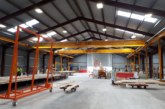Cedric Bucher, CEO at Hearthstone Investments, explores the rapidly growing suburban private rented market and how SME developers can benefit.
Until now, Built-To-Rent (BTR) activity has largely focused on high-rise apartment blocks in central urban locations. In fact, 90% of completed and operational BTR units across the UK are in and around city centres, yet we know that over 50% of renters live in suburban areas.*
Large institutional investors are now entering the suburban private rental sector – or single family home market – and often with significant ambitions. Depending on the scale of their plans, they may acquire developers specifically for this purpose or form partnerships with large nationwide developers.
However, that doesn’t mean there’s no opportunity for SME housebuilders to benefit from this influx of capital. For example, at Hearthstone Investments we have worked with and acquired new homes from SME housebuilders for over 10 years and have completed many transactions where we’ve just acquired between 10 and 20 units.
Selling to institutional investors
Typically, developments of 10-50 units will be built with owner-occupiers in mind, some of which are first time buyers. SME developers will work with a trusted local agent looking to sell unit by unit, often with staggered releases in order not to flood the market and manage cash flow over time. Units are sold at the prevailing market rates and levels of demand which can be an opportunity, but also a risk.
Engaging with an institutional investor takes away some of the uncertainty and risks in managing cash flows. The housebuilder can effectively “lock-in” a sale of a number of units at an agreed price. If this is with a trusted cash buyer, this can happen quickly and with the assurance that all the parties involved at all stages of the process (such as conveyancing, insurance and valuation) are reliable and competent.
The model works well either at the very beginning or towards the end of a development. If a deal is agreed at the beginning, the housebuilder can effectively sell a whole site or phase without the need to engage with an agent, free up the cash and focus on the next site or phase. Towards the end of a phase of development, an institutional developer can acquire all remaining units which again allows the developer to “close” a phase or site and move on to the next one. Overall, this de-risks cash flow planning for the developer and can accelerate growth.
Are institutional investors good neighbours?
SME housebuilders typically have a much closer connection to their developments, in their communities compared to large nationwide builders. When selling to an institutional investors, how can you feel confident the properties which might be adjacent to those for sale to owner-occupiers are well maintained?
Institutional investors have an inherent commercial incentive to maintain properties well and to carefully select their tenants and look after them. In the case of Hearthstone Investments, for instance, the majority of our investors are Local Government Pension Schemes. In order to deliver their expected income, high rent collection, low voids and low arrears are critical. Practically, this means that tenants and their homes will be well looked after and fit well within a wider community long after a sale is complete.
The aim of a successful suburban private rented housing investment is to provide quality rental housing (whether that’s apartments or houses) in locations where the demand is greatest. For SME housebuilders, it’s an additional option that can offer cash flow predictability and the opportunity for additional growth alongside sales to the private market.
*Spotlight: Suburban Build to Rent, Savills UK, September 2021
Case study: Hills Residential has worked with Hearthstone on two of its schemes in Colchester
Jonathan Hills (MD), Hills Building Group: “Over the past five years we agreed two transactions with Hearthstone Investments for eight and nine units respectively. The first was for a number of houses within a larger development, while the second was a whole phase that sat alongside another phase we were constructing in parallel.
“In both instances, selling parts of a larger project to an institutional investor gave us some certainty on cash flow whilst still being able to sell a significant proportion into the private market. Having The New Homes Group liaising between us and Hearthstone helped in managing the overall process from the initial approach to negotiations, exchange and successful completion.”









